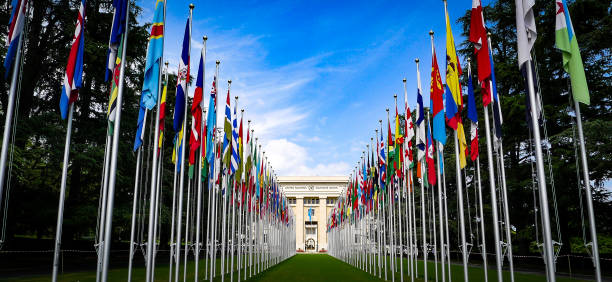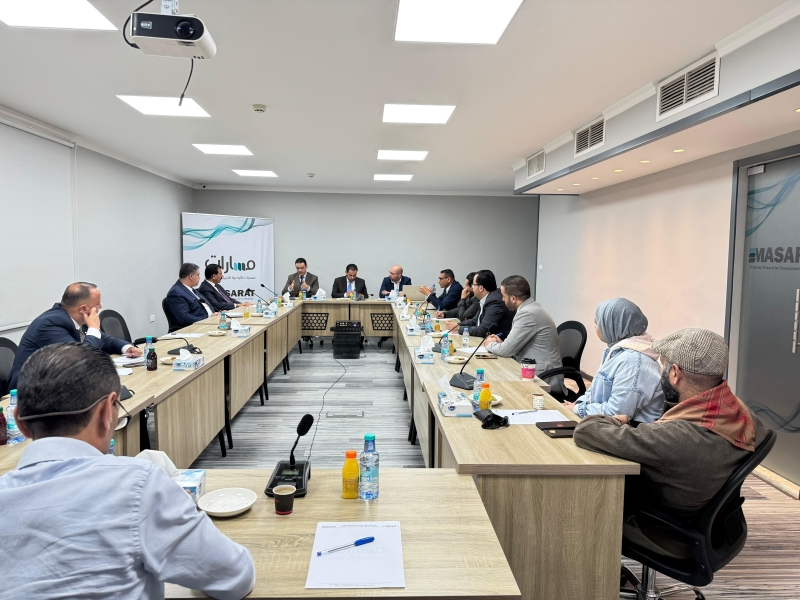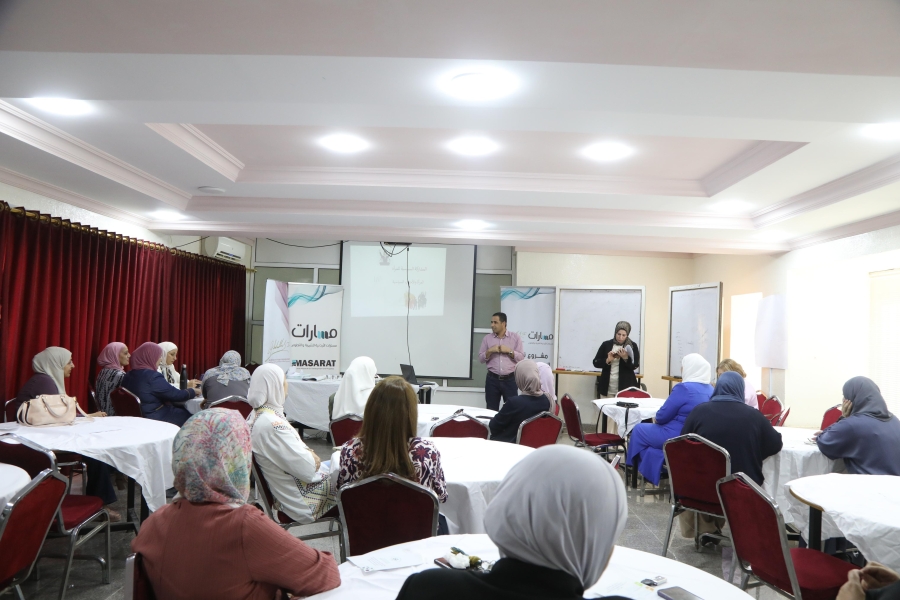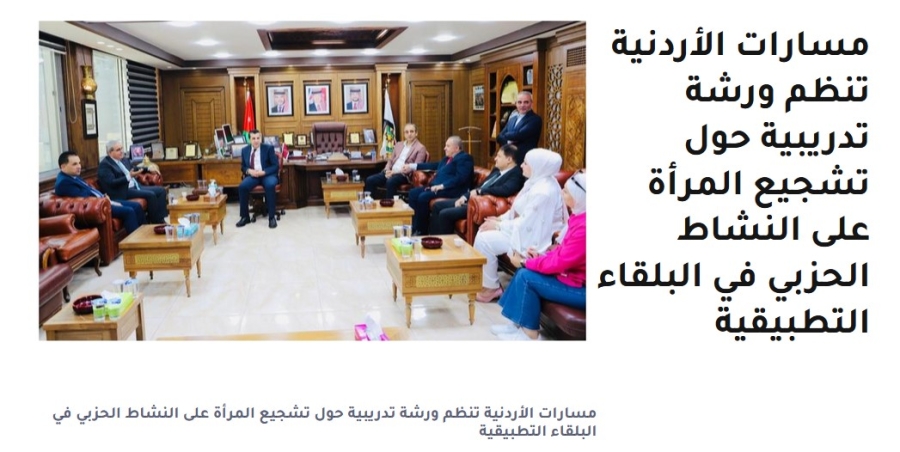Al-Maaytah sponsors the launch of the project “Training Academic Women in Party Work"
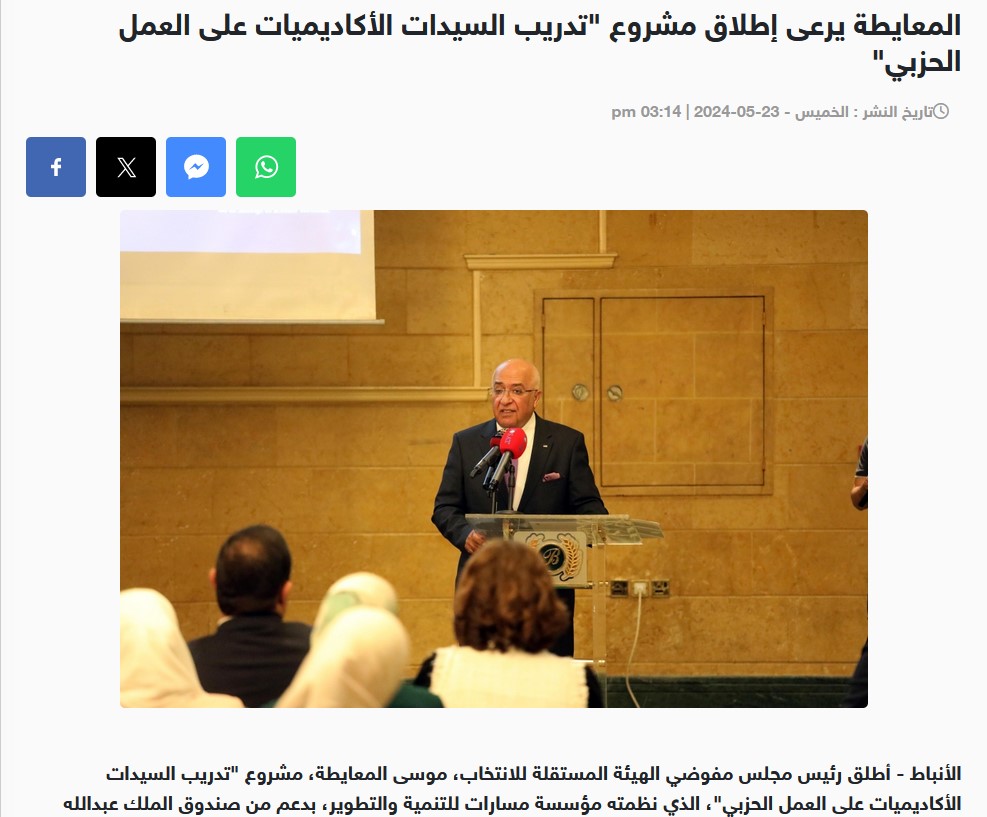
Maaytah Sponsors the Launch of the "Training Female Academics in Party Work" Project
Speaking at the launch event, Maaytah emphasized the importance of supporting civil society organizations and their initiatives, which align with the political modernization framework. He highlighted the significance of transferring knowledge from the female academics participating in the training to students, considering it an essential part of this modernization process.
Maaytah stated that achieving a parliamentary government requires transitioning from individual efforts to organized collective work. He emphasized that the success of collective work and political parties does not depend on individual capabilities but on structured collaboration. He reiterated that organized collective work within the parliament is the only way to establish an effective parliamentary government.
He also praised the electoral model implemented at the University of Jordan, describing it as a hallmark of democracy, and expressed hope for similar participation levels in the upcoming parliamentary elections.
Statements by Key Officials
Minister of Political and Parliamentary Affairs, Haditha Jamal Al-Khraisha, noted that the launch of this project coincided with the kingdom's 78th Independence Day celebrations. He emphasized Jordan’s consistent commitment to democratic principles since the era of the founding king through to King Abdullah II’s leadership. Al-Khraisha highlighted that, despite regional challenges, Jordan has proven itself to be a state of institutions and law, with constitutional obligations proceeding as planned.
He mentioned that parliamentary elections will take place this year as scheduled, under laws that consolidate political pluralism and provide greater opportunities for youth and women.
Al-Khraisha added that King Abdullah II’s initiative to form the Royal Committee for Modernizing the Political System aimed to strengthen democracy and political participation based on pluralism and political parties. He expressed optimism that these efforts would culminate in a parliamentary election that delivers program-based candidates and political blocs capable of fulfilling the aspirations of Jordanians.
He also pointed out that the legal framework in Jordan ensures the success of this transition to a pluralistic society. For instance, the political parties law mandates that at least 20% of party members must be women, while the election law ensures robust representation for women in parliament—far greater than in previous sessions.
The government, he explained, has aligned itself with this project, implementing activities and programs targeting university students and faculty members teaching civic education. These efforts aim to integrate political modernization into curricula, instill democratic values, and educate students about their rights and responsibilities.
Insights from KAFD and Masarat Foundation
KAFD Director Mazen Tblett expressed pride in launching the "Tamkeen" initiative to support political projects. He highlighted that the initiative aligns with King Abdullah II's silver jubilee celebrations and ongoing political modernization efforts. Tblett noted that the project provides financial support for initiatives while fostering collaboration between the public and private sectors and civil society organizations.
The current cycle of the "Tamkeen" initiative supports ten projects, focusing on areas such as:
- Systematic understanding of political parties and alliances in Jordan.
- Enhancing party use of digital media and content production to promote their objectives.
- Equipping female academics in universities with leadership skills for effective decision-making and participation in political activities.
- Empowering Jordanian youth for active political engagement, particularly in the upcoming parliamentary elections.
- Training female leaders aspiring to run for elections in public speaking and advocacy across Jordan’s three regions.
- Contributing to the development of programs that serve public interest.
Tblett noted that the second phase of the "Training Female Academics" project aims to support and develop women in political parties. He highlighted that the first phase trained 75 female academics and 90 university students, providing them with essential skills for effective participation in party work.
Reem Abu Hassan, Chairwoman of Masarat Foundation, expressed hope that the project would inspire positive political transformation and strengthen democratic institutions. She explained that the project reflects KAFD’s partnership with civil society organizations to reinforce party work and embed it into Jordanian society.
Abu Hassan emphasized that the project dismantles barriers historically limiting women’s full participation in politics. The first phase successfully trained over 150 participants, equipping them with tools to navigate the political landscape and excel in leadership roles.
She outlined plans to deepen the project's impact by introducing advanced modules on leadership, strategic negotiation, and public policy development, preparing women to lead and reshape political discourse.
Post-Launch Discussion
The event featured a panel discussion with prominent figures:
- Dr. Anis Mansour, representing the Minister of Education and Higher Education, spoke about the role of education in fostering political participation.
- Dr. Ali Al-Khawaldeh, Secretary-General of the Ministry of Political and Parliamentary Affairs, discussed overcoming challenges to women’s political engagement.
- Dr. Amal Al-Awadah, Director of the Women’s Studies Center at the University of Jordan, highlighted the importance of women in party work.
- Dr. Batoul Al-Muheisen, Director of Princess Basma Center for Women’s Studies at Yarmouk University, discussed how academic institutions promote a culture of political participation.
- Dr. Aida Abu Tayeh, from Al-Hussein Bin Talal University, addressed the role of female academics in shaping political discourse.


